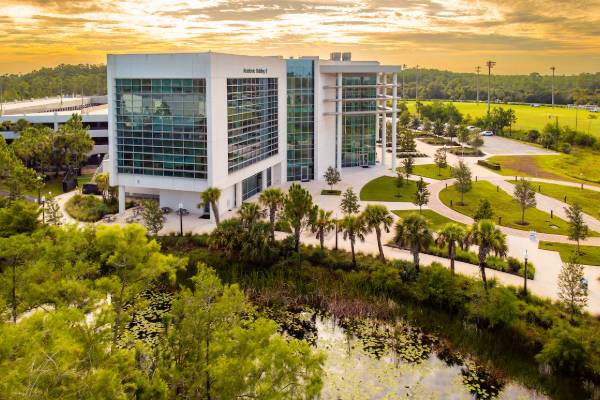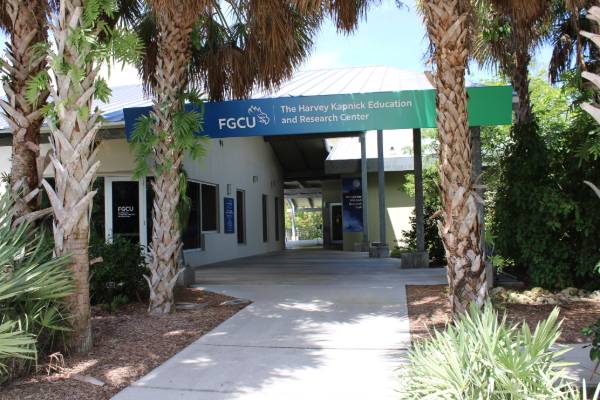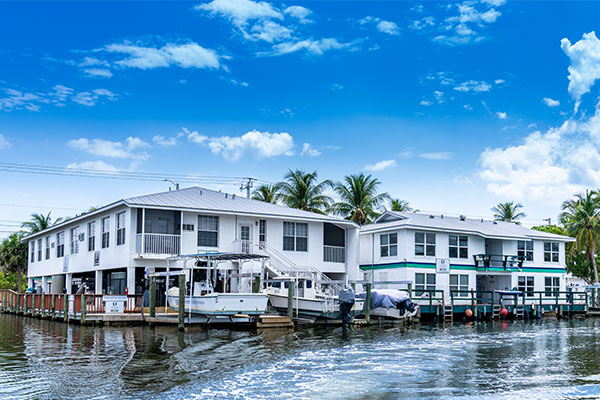Explore The Water School's Research and Teaching Facilities
The Water School features unparalleled learning and research faculties on and off campus. Each of these facilities focuses on expanding undergraduate and graduate students' educational and hands-on research in each of their respective fields. They bring together faculty from all disciplines and colleges within and beyond the University to work together on complex environmental and comprehensive issues.
Academic Building 9
The Water School’s home, Academic Building 9, was completed in 2022 and is the largest academic building on campus. It holds state-of-the-art research and teaching facilities and serves as a comprehensive center of STEM at FGCU.


Everglades Wetland Research Park
Working with the Naples Botanical Garden, we have developed the Kapnick Center, a joint-use facility for teaching, research and outreach located at the garden. The facility is home to FGCU’s Everglades Wetland Research Park, whose faculty, staff and students focus on restoration science through ecological engineering.
Vester Field Station
In 2007, Norm and Nancy Vester donated more than $1 million to FGCU, which enabled the university to buy the Bonita Beach Plantation Resort. Today, the facility serves as an easy-access point to Estero Bay and the Gulf of Mexico and is an important base of operations for studies of Southwest Florida’s coastal and watershed habitats. It’s used by FGCU faculty and students, as well as researchers from throughout Florida and the U.S. The Field Station is also responsible for Kimberly's Reef, off the Florida Gulf Coast.

